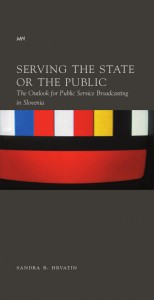
Serving the State or the Public. The Outlook for Public Service Broadcasting in Slovenia
The operation of RTV Slovenia is analyzed within the wider context of the transformation of state media into public service media in ex-socialist countries. In addition, the author draws parallels with public service media in some western countries where public service broadcasting has a long tradition. The author first gives a concise definition of a public service broadcaster. “It enables the public to access channels of mass communication, serves the public interest, and opens and sustains the space for public debate.” Since the public funds a public service broadcaster, serving the public interest is the key task of a modern public service broadcaster, which is accountable to the public rather than to the state or advertisers.
The author further concludes that the crisis experienced by public service broadcasters in ex-socialist countries has both systemic and structural reasons and that it would be wrong to think that this crisis has been produced by inadequate media legislation. “Not even an “ideal” law would guarantee an “ideal” PSB system, because a successful PSB system is not a product of legislation alone. A law can prescribe requirements for the functioning of public service broadcasters, but not also details of their practical operation.”
